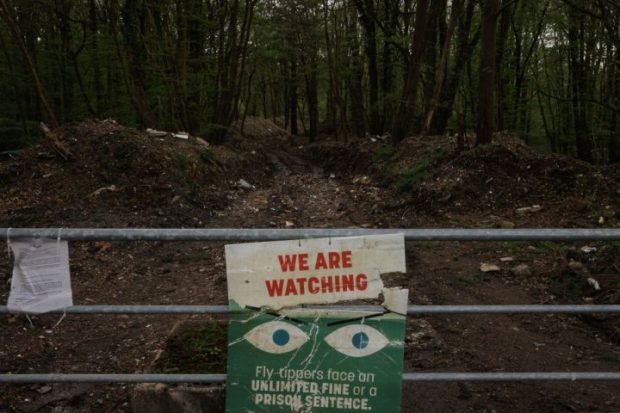We all needed a laugh, what with the pound tanking and inflation running away, my old pal Kwasi delivering a Budget, probably for a bet, like Milton Friedman’s last cheese-dream, and the threat of nuclear annihilation starting to seem like a welcome turn up for the books. Said laugh has just been obligingly provided by the Metropolitan Police.
They have just, without broadcasting the fact, decided to enforce the speed limit with the tiniest bit more rigour – and as a result, they’ve nicked more than two and a half times as many people for speeding in the first six months of this year than they did in the last six months of last year. Some 347,000 drivers have been walloped with points, fines and/or the baneful necessity of spending most of a day in a dismal room being given dismaying accounts of what happens when your front bumper makes contact with a toddler at 35mph.
The headline the Sunday Times gave to the story was ‘Thousands snared after stealth drop in speed “limit” by 1mph’. Those quote marks around ‘limit’ are doing a lot of work. The speed limit hasn’t changed one bit. Doing a whisker more than 70 on the motorway is still, not technically but as a matter of fact, illegal. What actually happened was that the Met decided, without any fanfare, to lower the threshold at which they’d bother to take action against speeding drivers.
Up till the beginning of the year, they gave you a bit of latitude. If you were doing less than ten per cent over the limit plus three miles an hour, no enforcement action would be taken. They decided, this year, that they’d start busting anyone doing more than ten per cent over the limit plus two miles per hour. Bam: a 259 per cent increase in enforcement action. It seems a low trick, I’ll grant you. Many drivers who feel entitled to break the speed limit, just a little bit, because they know that good drivers are safe bending the rules if they’re expert readers of road conditions, will be very cheesed off about it.
But it’s also a little bit funny. A great disturbance in the Force, as if a million voices suddenly cried out ‘Oh come off it! I was only doing 79!’ – and were suddenly met by the giggles of the chief constable. Not only will this raise a good deal of useful revenue – but it will make the nation’s marginal speeding offenders (of which, no airs of moral superiority here, I am one) just that bit less sure of themselves; which, in the sum of things, is probably a positive contribution to road safety in general.
On the question of the supposed injustice of it, a loose analogy suggests itself to me. I remember many years ago, when I was first working in newspapers, having an older mentor tell me: ‘You are keeping your expenses up to date, I trust.’ I replied, innocent as anything: ‘Oh yes. I just haven’t had any for a few weeks.’ He practically fainted. ‘Not had any expenses? My God! You’ll make us all look like crooks!’ I was tasked, immediately, with taking the great man out for what would go down on the ledger as a ‘working lunch’. As he explained over the second bottle of burgundy, there was nothing shady about claiming lunch with colleagues on expenses: it was custom and practice. All part of the remuneration package.
As I thought about it, and as I think about it now, he was almost certainly right. Newspaper management back then indulged a generous interpretation of what would count as an allowable expense. I don’t think that was pure kind-heartedness on their part, though. No doubt there are accounting advantages to the value of these perks not showing up on the balance sheet. And treating expenses as part of the remuneration package puts you, as an employer, in the agreeable position of being able to summarily raise or lower a worker’s salary without committing to it in writing, incurring pension contributions and all the rest of it.
But best of all, from an employer’s point of view, is that if you do wink at your workforce claiming more than the letter of the company rulebook quite allows – then if for whatever reason you decide to give them the heave-ho you have a ready-made excuse. Where in your contract, the managing editor would be able to ask as you yammered and blustered, did it say you could take your boss to Kensington Place for a nosh-up on our dime? ‘But, but, but!’ you would yelp, and you would yelp in vain. I’ve therefore tended to err on the side of puritanism about what I claimed, lest it come back to bite me. (People always seem to want to give me the sack, sooner or later, and it seems prudent to make it as tricky for them as I’m able.)
So it is, in a way, with speed limits. We have mistaken systematic getting-away-with-it with an established right. And so accustomed have we become to this systematic getting-away-with-it, that we have recalibrated the speed limit in our heads to 80mph on a motorway and a shade under 70mph on A-roads, and thus we have placed ourselves all quite voluntarily within the reach of plod’s child-catcher-style butterfly net. Which is fine, until it isn’t. When the butterfly net descends, we have only our fool selves to blame.
Among other things, here is an excellent form of progressive taxation – those in extreme poverty are much more likely to be taking the bus, so are proportionately less likely to get clobbered – just waiting to be exploited. Taxes are being cut left right and centre – so why not claw a bit back from people who can afford to tear it up around the North Circular? I leave the working out of the fine details of this to the economists, but it’s a thought. Indeed, I bet someone, somewhere in the Treasury, has a spreadsheet on which they have worked out exactly how much revenue could be raised, in an emergency, by setting every speed camera in the land to go off at the exact speed limit.
It does seem odd, though, that this one mile per hour – which is probably within a margin for error on the average speedo – is said to have yielded such a startling result. Can all those drivers have been so precisely within the existing tolerance that a recalibration of a single mile per hour is enough to nick them? Or was this on-paper alteration in the guidelines accompanied by a general change of policy in favour of nicking them rather than letting them go? No matter. Either way, the Met have the last laugh in this case – and we very-slightly-dangerous drivers should have the good grace to acknowledge when we’ve been outplayed.
Got something to add? Join the discussion and comment below.
Get 10 issues for just $10
Subscribe to The Spectator Australia today for the next 10 magazine issues, plus full online access, for just $10.




















Comments
Don't miss out
Join the conversation with other Spectator Australia readers. Subscribe to leave a comment.
SUBSCRIBEAlready a subscriber? Log in